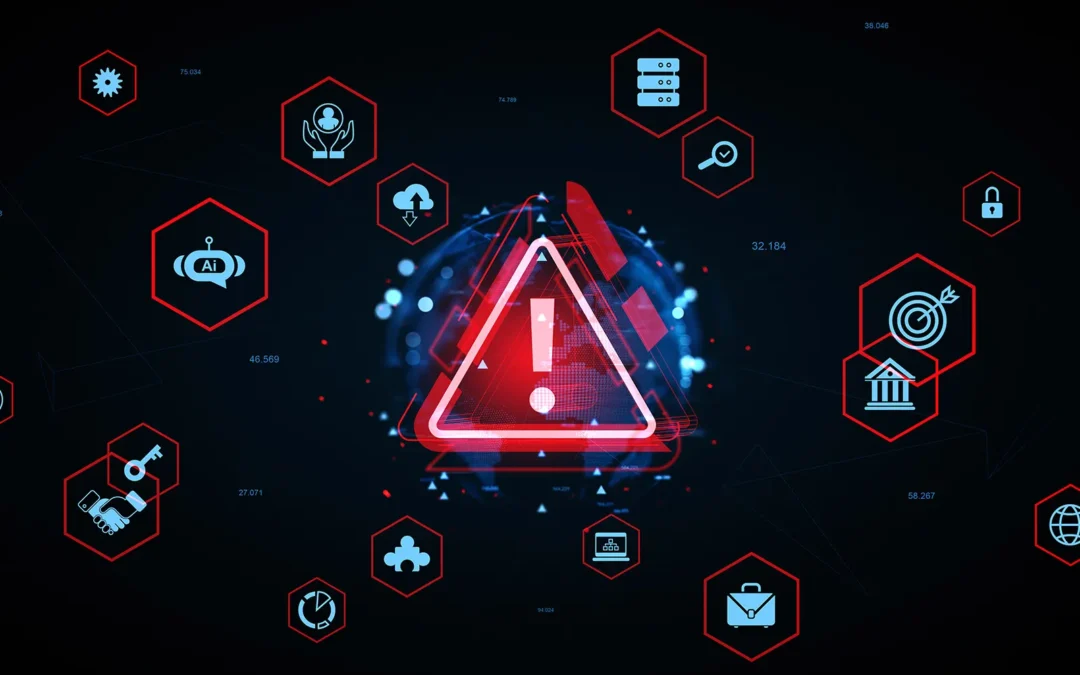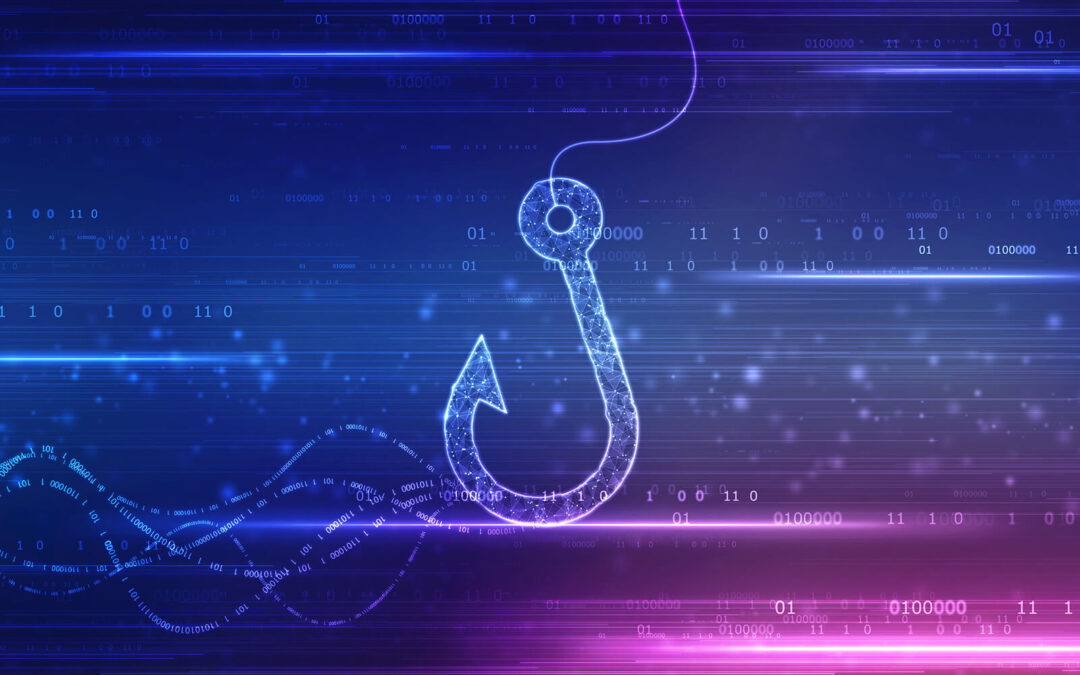Cyber threats don’t discriminate based on the size of a business. This places small businesses in just as much danger as larger enterprises. As someone who runs a small business, we know how crucial it is to recognize that falling victim to cyber threats can lead to dire outcomes. Repercussions can lead to financial detriment, tarnished brand reputation and potential legal complications. Attackers often set their sights on digital assets including customer information databases, social media accounts and unique company software.
Regardless of whether you handle your digital asset management internally or delegate these tasks externally, dedicating resources to solid cybersecurity defenses is essential. Fortunately for smaller enterprises, there are an array of cybersecurity solutions specifically designed with them in mind. These range from educational programs focused on security awareness, all the way through to comprehensive endpoint protection platforms.
In this blog, we’ll look at some of the ways small and medium businesses can protect their sensitive data and enhance their security operations.
Security Awareness Training
To keep your small business safe from cyber attacks, solid security awareness training is key. This means teaching your team to spot and handle cyber threats, make strong passwords and understand risk management.
Training your team to recognize cyber threats can greatly reduce the chances of successful attacks. Untrained employees might fall for phishing emails, leading to data leaks or ransomware issues. Knowing about social engineering schemes is crucial to prevent unauthorized access.
Consistent cybersecurity training helps prevent:
- Data theft
- Financial losses
- Reputation damage
- Legal troubles
It also covers remote work risks, ensuring safety measures are followed off-site.
Mock phishing drills test how well employees can spot scams and reinforce good online habits. By making security awareness training part of your overall strategy, you get your team ready and beef up your company’s defenses against cyber threats.
Multi-Factor Authentication (MFA)
Multi-factor authentication (MFA) is key to boosting your cybersecurity. It requires users to present multiple forms of ID — like a one-time passcode, fingerprint, facial recognition or voice analysis — to access their accounts.
By adding layers of security, MFA makes it much harder for unauthorized users to break in and steal sensitive data. Even if hackers get hold of your password, in most cases, they can’t get past the extra verification steps.
Adaptive MFA systems take it a step further by adjusting security requirements based on factors such as user location or device. This makes it even tougher for cybercriminals. Pairing strong passwords with MFA gives you a solid defense against data breaches and identity theft.
Strong Password Policies
Implementing strong password policies is the foundation of cybersecurity. Here’s how to do it:
- Create unique passwords using a mix of uppercase, lowercase letters, numbers and symbols
- Update passwords regularly
- Avoid common phrases or personal info
These practices cut down the risk of password breaches.
A password manager can help generate and store strong passwords for multiple accounts. Also, a clean desk policy and locking devices when unattended are key for boosting security. These steps, alongside strong passwords, help keep your digital environment safe. Make sure your entire team follows these rules to keep things secure.
Endpoint Protection Platforms (EPP)
Endpoint security platforms (EPPs) are vital for protecting devices connected to a network. They’ve evolved from basic antivirus programs to full-fledged solutions that guard against complex malware and zero-day attacks, securing data and device workflows like those on phones, tablets, printers, servers and more.
Modern EPPs use cloud-based threat info to boost speed and scalability. Key features include:
- Machine learning for threat classification
- Advanced anti-malware techniques
- Proactive web security strategies
- Built-in firewall services
Many EPPs now also include Endpoint Detection and Response (EDR) to spot advanced attack patterns and new vulnerabilities. EDR tools continuously monitor all incoming files and programs for malicious activity, improving detection and response times after a breach. They provide detailed info on compromised endpoints. This includes user actions before the breach as well as the collection of forensic data.
For businesses with remote workers, EPPs are crucial for protecting devices connected over external networks. They help IT managers enforce strict “zero trust” security protocols across the entire organization, no matter where employees are working from. Ultimately this ensures robust defense against cyber threats.
Next-Generation Firewalls (NGFW)
Next-Generation Firewalls (NGFWs) are super important for keeping your business safe. They protect your network by using smart tech like Intrusion Detection Systems (IDS) and Intrusion Prevention Systems (IPS). They also help stop DDoS attacks, making sure your connections are secure.
Here’s why NGFWs are great:
- They use machine learning to find new threats
- They offer strong protection against advanced cyber attacks
- They help control who can access what on your network
- They set up VPNs to keep your data safe from unauthorized access
NGFWs are all about making sure your network is secure. They treat every device and user as a potential threat, which means they provide strong protection against all kinds of cyber threats. Using these firewalls can really boost your business’s security.
Email Security Solutions
Every good cybersecurity plan needs to focus on email security. Secure email gateways are essential for filtering out spam and malware that could compromise user accounts. They act as guards for incoming and outgoing emails, stopping threats before they reach your inbox.
These solutions typically include anti-virus protection, spam filters and advanced threat detection tools. They not only block phishing links and malware, but they also check outgoing emails to prevent data leaks and ensure you can still access your emails during network issues.
Using cloud-based services for email security adds flexibility and reduces maintenance. By implementing these robust security measures, businesses can effectively protect their networks from various digital threats.
Data Encryption
Keeping sensitive data safe means encrypting it. Encryption scrambles data so only someone with a special key can read it. Encrypting hard drives is a common way to protect data even if devices are stolen.
To protect stored data, categorize it by sensitivity, encrypt it and use strong passwords. Moving data is at higher risk, so it is safer to encrypt it during transfers. For data in use, use extra safeguards like tokenization, which replaces sensitive info with tokens that are useless if stolen.
By encrypting data at rest, in transit and in use, you ensure it stays secure no matter where it is or how it’s being accessed.
Cloud Security Measures
Cloud security is all about keeping your data safe when using cloud services. It involves using tools and policies to protect your information from cyber threats. This means making sure that both the cloud provider and the user do their part in securing data. Key aspects include monitoring activity, setting up strong access controls, and using encryption to keep data safe. By focusing on these areas, businesses can ensure their cloud-based assets are well-protected.
Regular Security Audits
Regular security audits are vital for spotting and fixing security gaps. They include penetration tests and vulnerability scans to make sure you’re following rules like PCI DSS and HIPAA. These audits help find and reduce cybersecurity risks, which in turn, boosts your security.
Regular audits show your commitment to security, which ultimately leads to building customer trust. They also help keep your business running smoothly by protecting important systems and data.
Security audits help you stay ahead of cyber threats by finding weak spots in your security. Making audits part of your cybersecurity plan keeps your business compliant and secure.
Incident Response Planning
To handle cyber threats well, businesses need a solid incident response plan. This plan outlines what to do before, during and after a cybersecurity event. It can be broken down into four phases:
- Preparation and prevention
- Detection and analysis
- Containment, eradication and recovery
- Post-incident activities
Preparation involves setting up policies and training a team to respond to incidents. Containment and recovery focus on minimizing damage by isolating compromised systems. After resolving an incident, review what happened, learn from it and practice drills to stay ready for future threats.
Summary
Keeping your small business safe from cyber threats means covering all bases. Train your team and use best-in-class security tech to protect your digital assets. Staying alert and committed to cybersecurity keeps your business secure and your customers happy.
Remember, cybersecurity can be a full-time job. If you need extra support, HOCS Consulting is here to help. By partnering with us, you will have peace of mind that your business’s future is secure. Get in touch with HOCS Consulting today for a free cybersecurity assessment.










